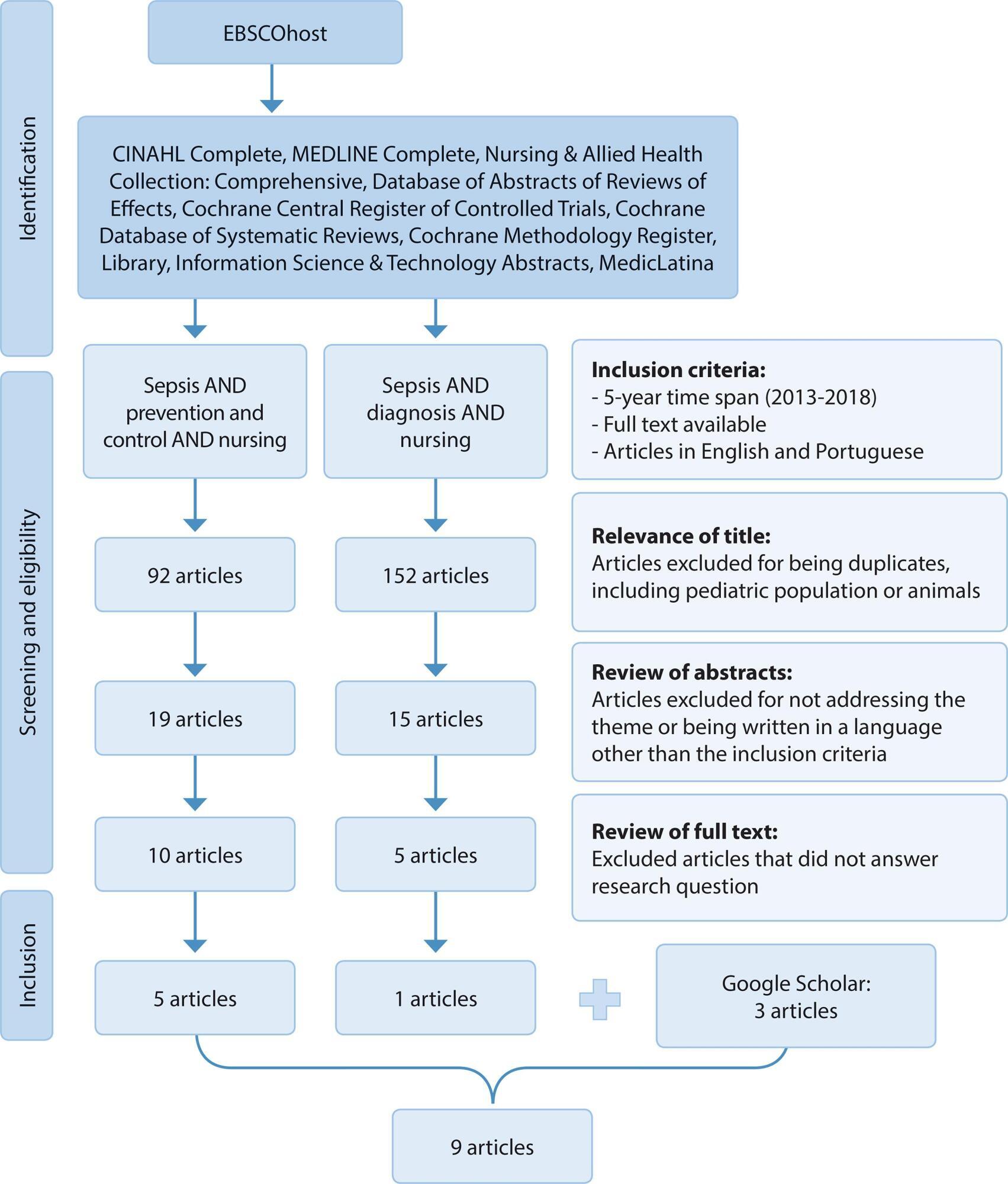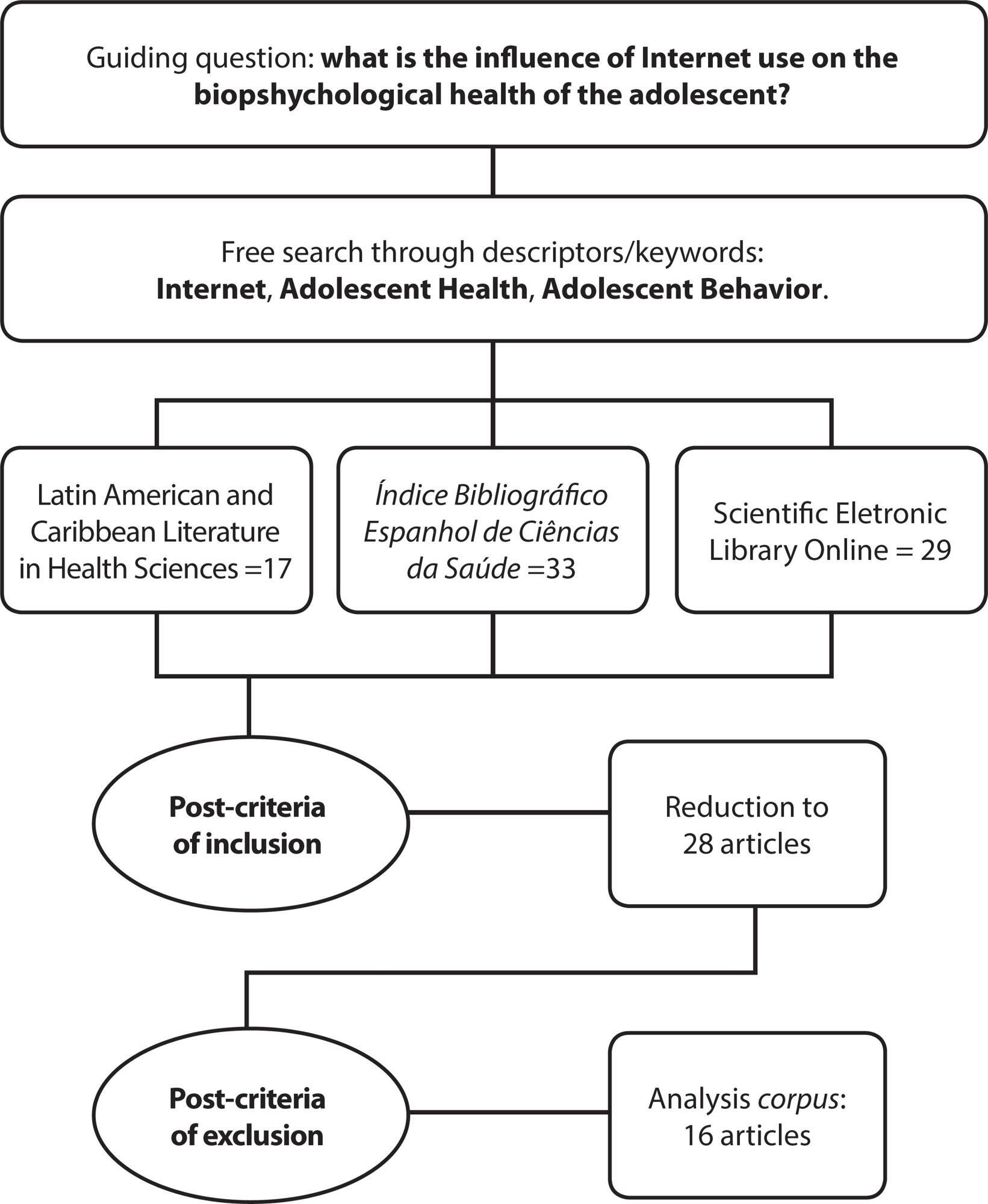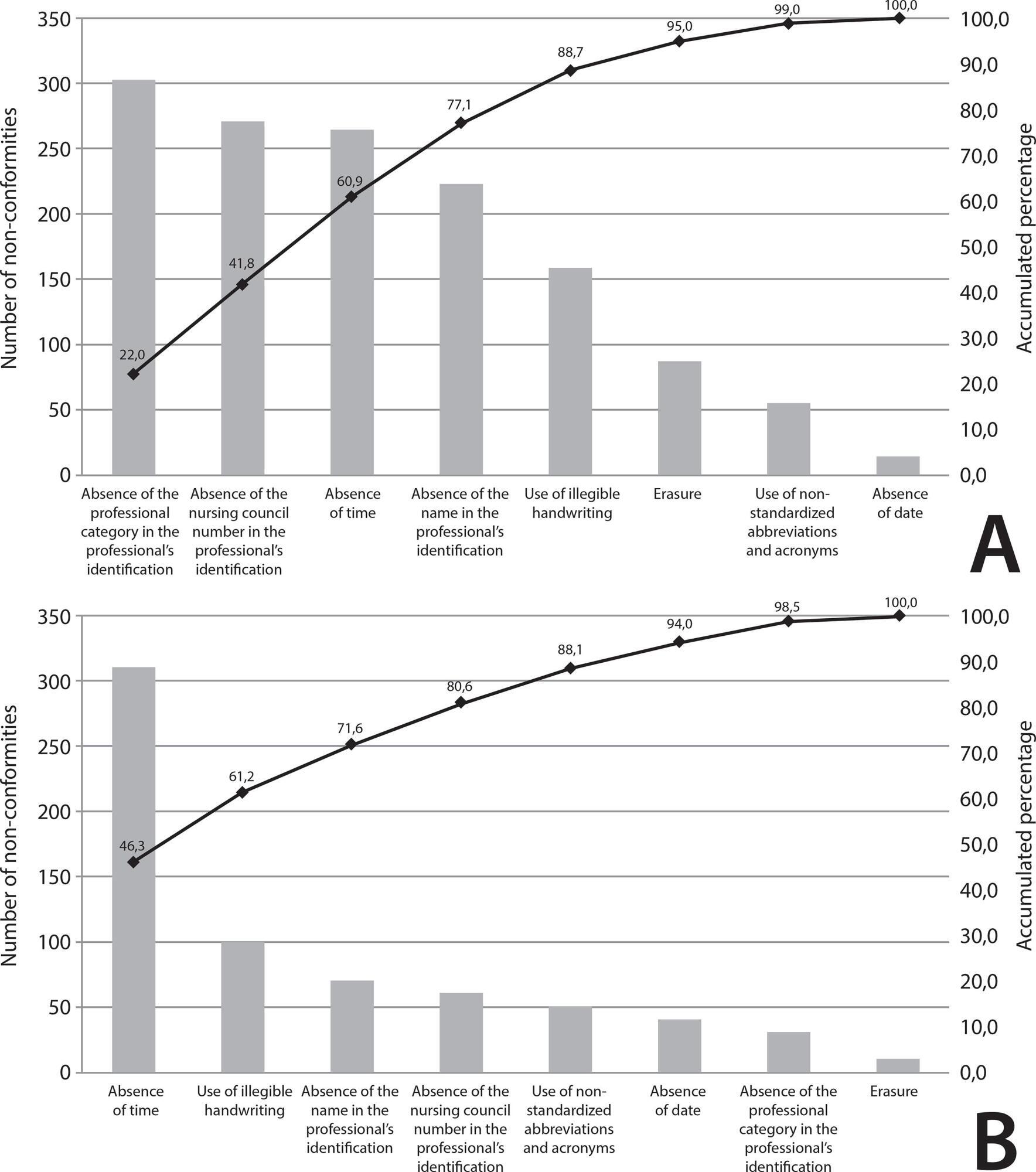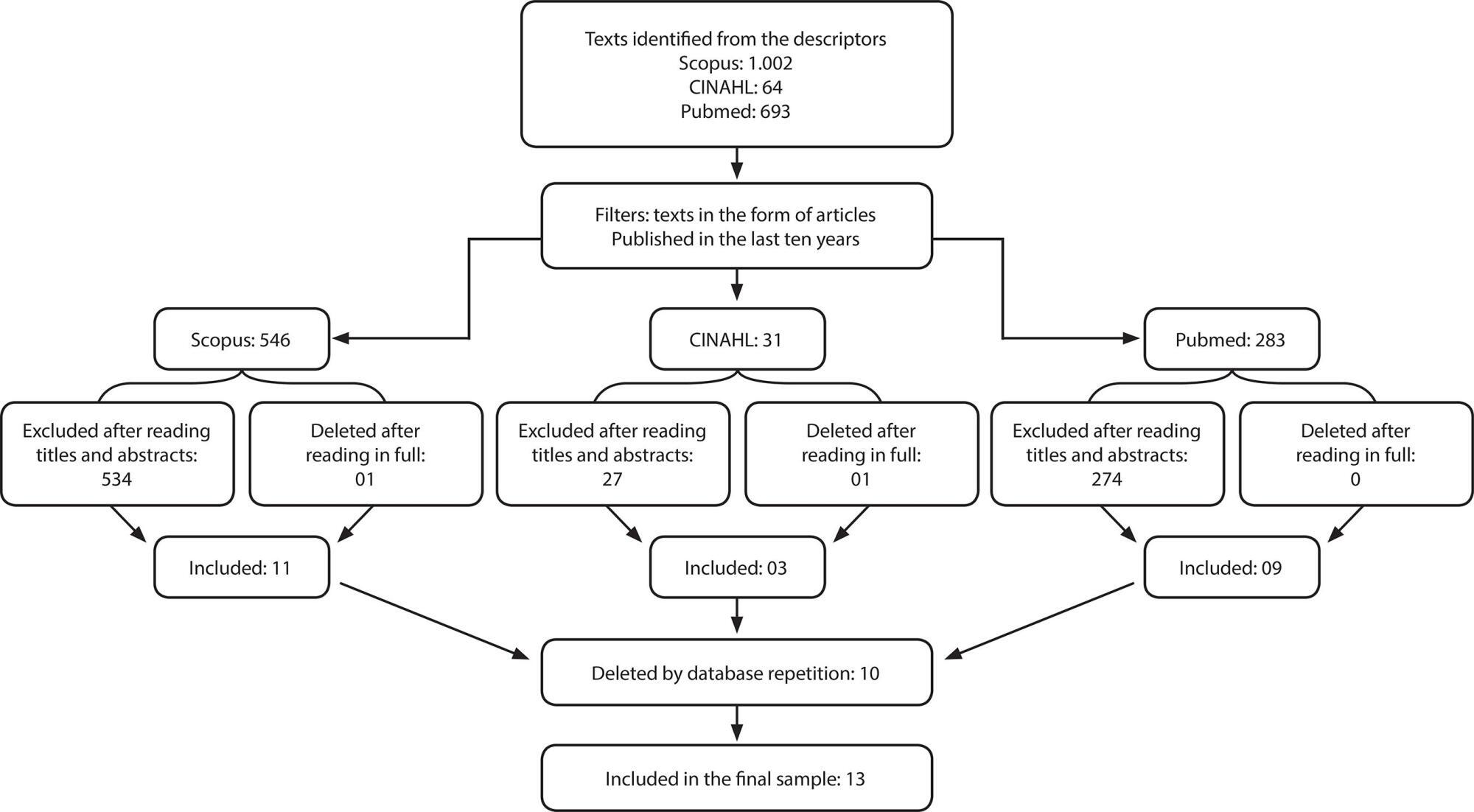-
01-01-2016
ERRATUM
Revista Brasileira de Enfermagem. 2016;69(1):206-206
Abstract
ERRATUM
Revista Brasileira de Enfermagem. 2016;69(1):206-206
DOI 10.1590/0034-7167.20166901e02
Views0In the article “Conceptions of mid-level nursing professionals facing those with a chemical dependency”, with the number of DOI: 10.1590/0034-7167.2015680610i, published in the journal Revista Brasileira de Enfermagem, v68(6):755-60, page 760 that read: “8. Vargas D, Soares J. Knowledge and attitudes of nurses towards alcohol and related problems: the impact of an educational intervention. Rev […]See more -
01-01-2016
ERRATUM
Revista Brasileira de Enfermagem. 2016;69(1):205-205
Abstract
ERRATUM
Revista Brasileira de Enfermagem. 2016;69(1):205-205
DOI 10.1590/0034-7167.20166901e01
Views0In the article “Using the theory of meaningful learning in nursing education”, with the number of DOI: 10.1590/0034-7167.2015680420i, published in the journal Revista Brasileira de Enfermagem, v68(4):626-35, page 627 that read:“Ausubel was descended from Jewish, born in New York in 1918 and died in 1994 at the age of 75. He thought and wrote until […]See more -
01-01-2016
Nursing process documentation: rationale and methods of analytical study
Revista Brasileira de Enfermagem. 2016;69(1):197-204
Abstract
Nursing process documentation: rationale and methods of analytical study
Revista Brasileira de Enfermagem. 2016;69(1):197-204
DOI 10.1590/0034-7167.2016690126i
Views0See moreABSTRACT
Objective:
to describe the methods used to analyze the associations between variables of service, nursing and the nursing process documentation in institutions of the Department of Health of the State of São Paulo.
Method:
multilevel analytical study with data obtained in the domains of institution, units of the institution and nursing professionals who work there, using standardized instruments. The analyses had as axis the degree of completeness of the nursing process documentation in units or institutions and their association with variables of nursing personnel, of units and of institutions.
Conclusion:
This study will provide important empirical evidence on the factors involved in the nursing process documentation.
PlumX Metrics
- Citations
- Citation Indexes: 10
- Usage
- Full Text Views: 44807
- Abstract Views: 1048
- Captures
- Readers: 62
-
01-01-2016
Qualitative methodologies in health research: interpretive referential of Patricia Benner
Revista Brasileira de Enfermagem. 2016;69(1):192-196
Abstract
Qualitative methodologies in health research: interpretive referential of Patricia Benner
Revista Brasileira de Enfermagem. 2016;69(1):192-196
DOI 10.1590/0034-7167.2016690125i
Views0See moreABSTRACT
Objective:
this article reports on the experience of using the interpretive phenomenological framework of Patricia Benner in a Brazilian context. Benner’s interpretive phenomenology, based on existential and interpretative philosophy, aims to understand human experiences in the particular worlds of research participants. Data were collected through interviews with nine nurses in November and December 2014.
Results:
data analysis process according to Benner’s framework consisted of: transcription, coding, thematic analysis, and search for paradigmatic cases and examples. Therefore, the prior knowledge of the researcher is an important part of the study, consisting in manners of the research conduction.
Conclusion:
The use of this methodological framework entailed a great challenge for the researcher, however, it also enabled a unique opportunity to illuminate important existential phenomena related to the daily lives of research participants.
PlumX Metrics
- Citations
- Citation Indexes: 15
- Usage
- Full Text Views: 22120
- Abstract Views: 1419
- Captures
- Readers: 104
-
01-01-2016
Nurses’ performance on primary care in the National Health Service in England
Revista Brasileira de Enfermagem. 2016;69(1):182-191
Abstract
Nurses’ performance on primary care in the National Health Service in England
Revista Brasileira de Enfermagem. 2016;69(1):182-191
DOI 10.1590/0034-7167.2016690124i
Views0See moreABSTRACT
Objective:
To analyze the expansion of nursing roles in primary care in the English National Health Service and the implications for professional practice.
Method:
qualitative research in case study format, held in London, England, in six primary care units. Data were obtained through interviews with nine nurses. After the thematic data analysis, two units emerged: the nurses’ performance characteristics and effects of the expansion of nursing roles.
Results:
expansion of nurses’ roles: consultation, diagnosis and drug therapy, case management and monitoring of chronic conditions. Repercussions: for the user, there was improved access, communication and comprehensive care, increased duration of consultations, resulting in greater adherence; for nurses, there was the expansion of professional skills, knowledge and professional recognition; to the health care system, it resulted in cost savings.
Conclusion:
benefits in expanding nursing roles, were visible, contributing to primary care quality.
PlumX Metrics
- Citations
- Policy Citations: 1
- Citation Indexes: 27
- Usage
- Full Text Views: 40875
- Abstract Views: 942
- Captures
- Readers: 113
-
01-01-2016
Meleis’ Nursing Theories Evaluation: integrative review
Revista Brasileira de Enfermagem. 2016;69(1):174-181
Abstract
Meleis’ Nursing Theories Evaluation: integrative review
Revista Brasileira de Enfermagem. 2016;69(1):174-181
DOI 10.1590/0034-7167.2016690123i
Views0See moreABSTRACT
Objective:
to analyze the application of the theory evaluation model proposed by Meleis in Brazilian studies.
Method:
integrative review of online articles published from 2002 to 2012 in the databases LILACS and BDENF.
Results:
the 16 selected studies confirmed the use of only three of the five stages proposed for Meleis’ theories analysis: Description of the Theory, Criticism of the Theory and Analysis of the Theory, with a predominance of a single unit of analysis in each.
Conclusion:
the analysis of nursing theories provides support to nurses in the practice, research, education and administration of the different dimensions of care. Meleis’ model figures as very important by contributing to the development of knowledge of nursing discipline, considering that its use as a method allows several reflections on theories in order that they be revalidated to support a more theoretical and practical applicability.
PlumX Metrics
- Citations
- Citation Indexes: 16
- Usage
- Full Text Views: 73912
- Abstract Views: 5281
- Captures
- Readers: 311

-
01-01-2016
Clinical indicators of sexual dysfunction in pregnant women: integrative literature review
Revista Brasileira de Enfermagem. 2016;69(1):165-173
Abstract
Clinical indicators of sexual dysfunction in pregnant women: integrative literature review
Revista Brasileira de Enfermagem. 2016;69(1):165-173
DOI 10.1590/0034-7167.2016690122i
Views0See moreABSTRACT
Objective:
to identify the nursing diagnosis clinical indicators of sexual dysfunction in pregnant women.
Method:
it is an integrative literature review, with research in databases using the keywords “sexual*”, “pregnan*” and “function*”. Studies included had an abstract available for analysis, referring to pregnant women over 18 years old, written in Portuguese, French, Spanish and English, with publication date between 2010 and 2014. Studies that reporting pregnant women with an associated pathology were excluded.
Results:
sexual dysfunction in pregnant women is consistent in the literature. Nine defining characteristics were identified and 16 related factors, some not classified in NANDA International.
Conclusion:
clinical indicators can be added to the nursing diagnosis to favor an accurate diagnosis and effective interventions in the surveillance of pregnancy as a period of healthy sexual experience.
PlumX Metrics
- Citations
- Citation Indexes: 11
- Usage
- Full Text Views: 17240
- Abstract Views: 2294
- Captures
- Readers: 76

-
01-01-2016
Conditions of functional health literacy of an elderly diabetics group
Revista Brasileira de Enfermagem. 2016;69(1):156-164
Abstract
Conditions of functional health literacy of an elderly diabetics group
Revista Brasileira de Enfermagem. 2016;69(1):156-164
DOI 10.1590/0034-7167.2016690121i
Views0See moreABSTRACT
Objective:
to evaluate the conditions of functional health literacy of an elderly diabetics group.
Method:
cross-sectional and descriptive study, with diabetic’s elderly assisted in the SUS (N = 114). The social and health conditions were evaluated as well as functional health literacy by S-TOFHLA test (short version); the simple proportions, average, standard deviation and Pearson’s Chi-square were described by SPSS software (20.0) with α = 5% value.
Results:
the mean age was 67.4 years, 74.0% of the elderly were women, had up to four years of schooling; 29.8% had a long-standing illness, 64.0% reported having high blood pressure, 47.4% smoke or were smokers, 73.7% had low functional health literacy, which was associated with schooling p = 0.001.
Conclusions:
the low functional health literacy could be a self-care conditioning and can be influenced by low schooling because it implies to have skills to understand and make decisions aimed at self-management of health.
PlumX Metrics
- Citations
- Citation Indexes: 19
- Usage
- Full Text Views: 13088
- Abstract Views: 903
- Captures
- Readers: 117
Search
Search in:
Nuvem de Tags
Enfermagem (930)Cuidados de Enfermagem (269)Atenção Primária à Saúde (239)Idoso (208)Educação em Enfermagem (151)Segurança do Paciente (150)Saúde Mental (145)Educação em Saúde (139)Estudos de Validação (131)Qualidade de Vida (104)Tecnologia Educacional (100)Promoção da Saúde (99)COVID-19 (91)Criança (91)Família (87)Enfermagem Pediátrica (86)Saúde do Trabalhador (86)Adolescente (85)Saúde Pública (82)Estudantes de Enfermagem (77)











